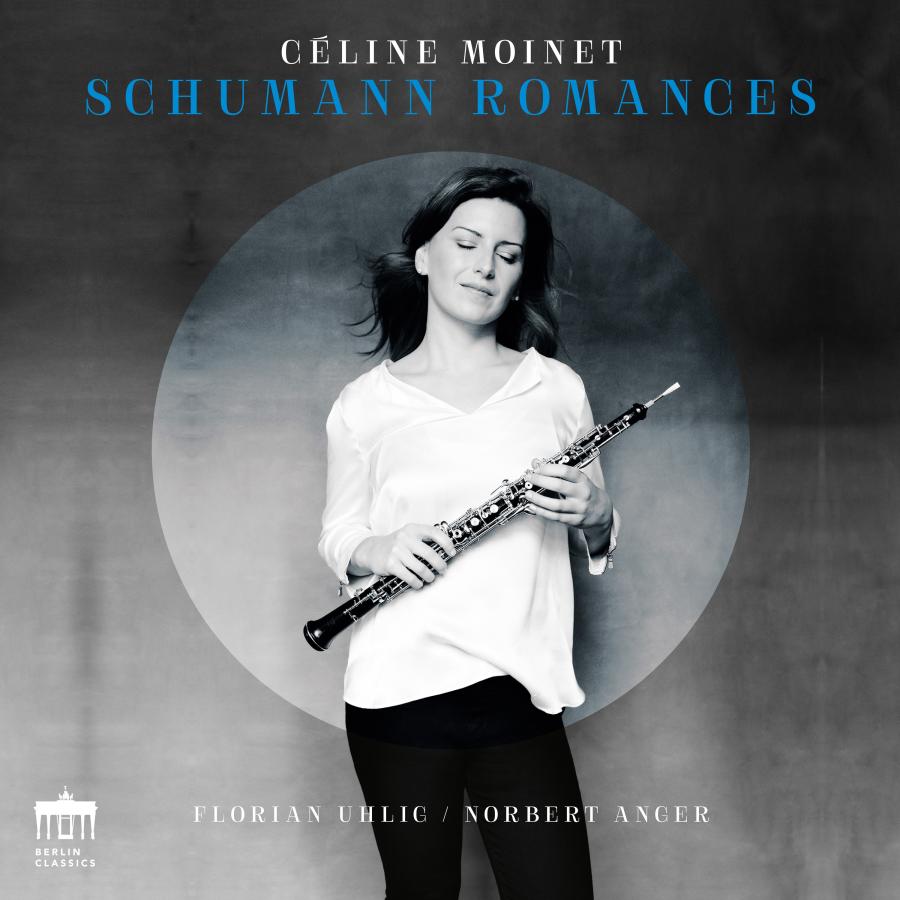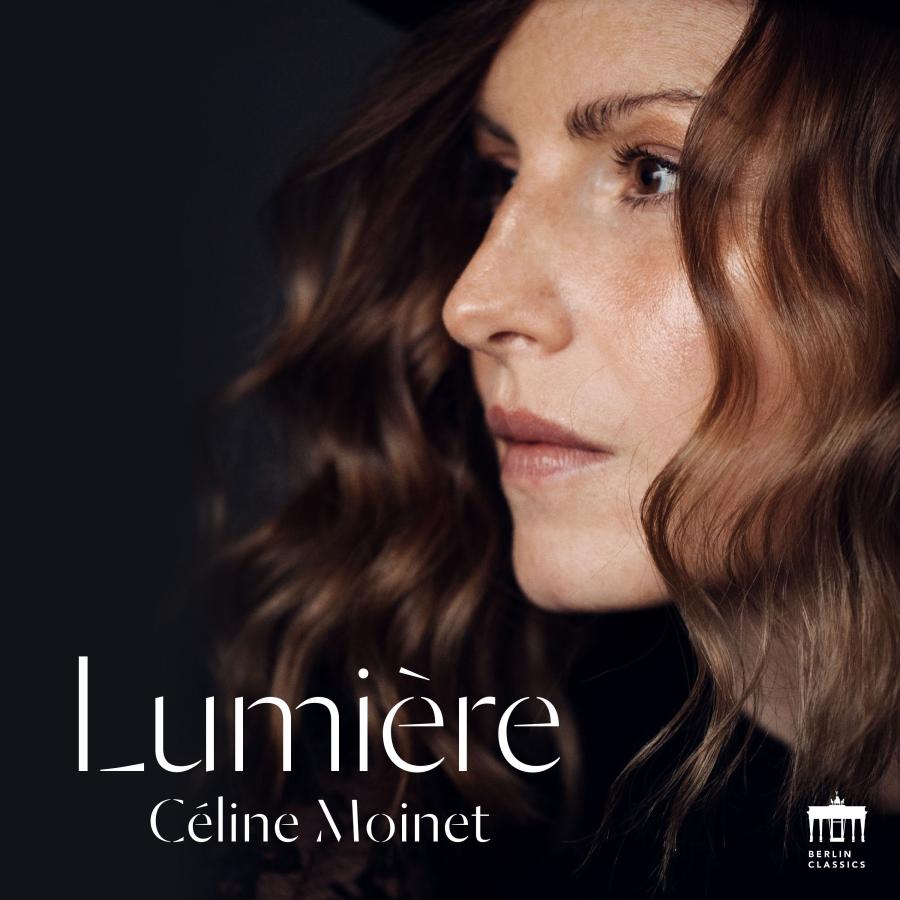“I was very diligent all this entire time – it was my most productive year,” wrote Robert Schumann in 1849 in a letter to Ferdinand Hiller. This was the year that saw him compose the Three Romances for oboe and piano op. 94, which Robert presented to his wife Clara as a Christmas gift. And the choice of the oboe was no coincidence, since the composer loved the instrument, as is evident to anyone who listens to his symphonic works …
On her new CD, “Schumann Romances”, which will be released on October 13, 2017 on the Berlin Classics label, the French oboist Céline Moinet presents a selection of works written by Schumann for the oboe or which were specially arranged for the instrument. “I took the liberty of transposing some works for my own instrument, although oboists of Schumann’s era had already discovered his oeuvre for themselves,” explains the artist. “The oboist Emilius Lund (1830–1893) performed his Three Romances op. 94 at the Gewandhaus in Leipzig in 1863 with Carl Reinecke at the piano. He also arranged and published versions of ‘Träumerei’ and ‘Am Kamin’ from Schumann’s Kinderszenen (1838) for the oboe.” Clara Schumann too composed Romances (op. 22), originally for violin and piano, but which lend themselves equally well to the oboe. And there is a wonderful arrangement by Theodor Kirchner of Robert Schumann’s Studies for the Pedal Piano op. 56, which brings together the oboe, cello and piano.
In fact, it was not Träumerei, which came so strongly in the twentieth century to embody the image of Schumann’s character and oeuvre, but Abendlied op. 85 (no. 12) that was by far the best known of Robert Schumann’s works in the nineteenth century. It is therefore hardly surprising that Céline Moinet chose both works for her album, thereby eliciting new nuances from Schumann’s two “hits” with her instrument. Ultimately, it is Schumann’s Lieder and lyric gems that are lent a completely unique new colouring thanks to the oboe’s timbre. And even though there are no lyrics to this version for oboe and piano – the poetry comes out fully in any case – this is clearly a declaration of love set to music: “My lovely star! I beg you, / Do not fall to the Earth, / Because you see me here below, / Instead, lift me up to heaven, / My lovely star, where you already are!”
Céline Moinet was born in in Lille, northern France, in 1984 and finished her studies at the Paris Conservatoire National Supérieur de Musique in David Walter’s class with the best marks and highest commendation. At just 23 years of age, Céline Moinet was appointed to the prestigious post of solo oboist with the Dresden Staatskapelle. Since then she has worked with conductors such as Christian Thielemann, Zubin Mehta, Claudio Abbado and Andris Nelsons, and is a regular guest with orchestras such as the Vienna Philharmonic and the London Symphony Orchestra.
The oboist is accompanied by pianist Florian Uhlig, a prestigious interpreter of Schumann’s music with considerable expertise and a worldwide reputation as a soloist and chamber musician. It was possible to engage the solo cellist of the Dresden Staatskapelle, Norbert Anger, for the Six Pieces in Canonic Form and together, the three musicians breathe new life into this wonderful declaration of love in musical form.






















